Written by:
I’m one of the lucky Londoners to have nature on my doorstep. The Roding Valley Park is just a short walk from my house and I take regular walks in the woods nearby with my family and my dog. It’s a wonderful resource for our community, with established trees, including apple, plum, cherry and pear trees, and blackberry brambles galore.
Winding paths are walked daily by local dog owners and provide a safe and serene space for joggers, as well as creating an enchanting environment for young children to explore and test their skills at climbing trees.
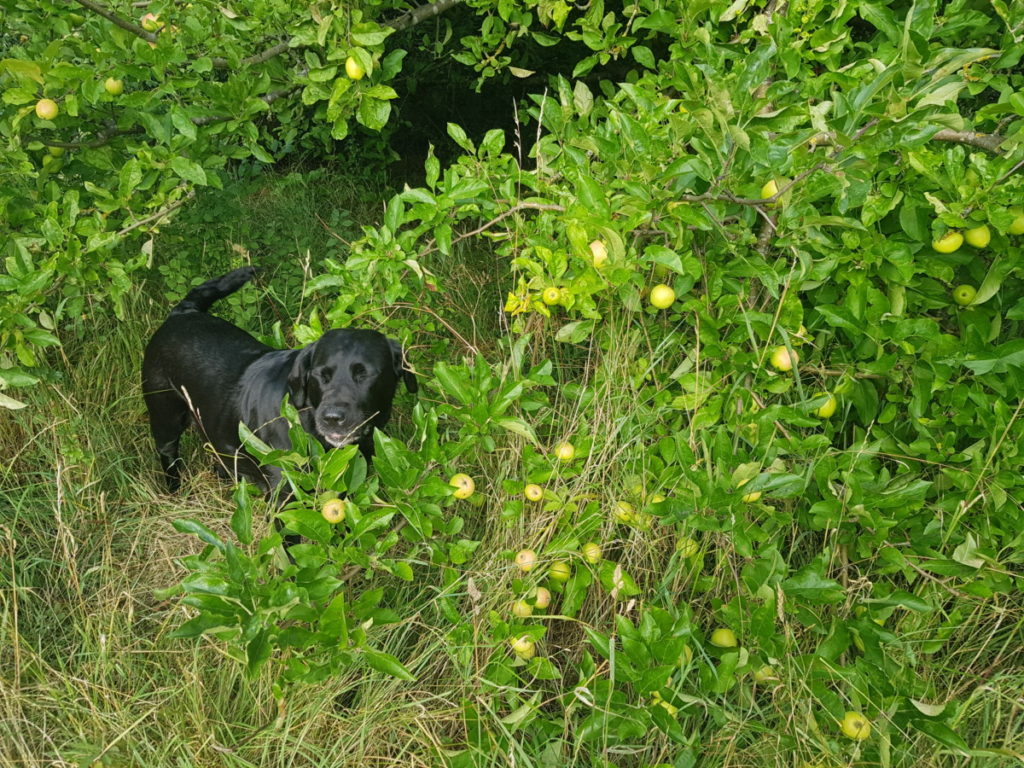
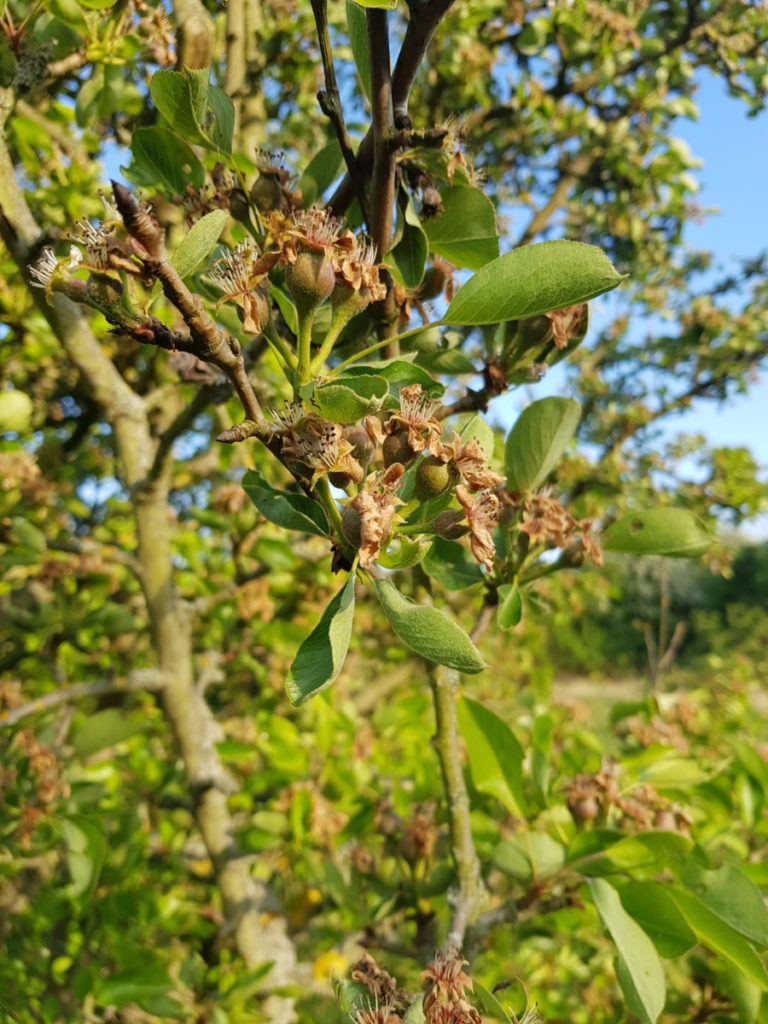
I take great pleasure in walking these woods, watching the seasons change and enjoying quiet time there after a busy day of work. Practically every time I go there, I think how lucky I am to have these woods so easily within my reach.
So you can imagine my annoyance when on Saturday evening, I came across the remnants of some kind of party strewn all over one of the clearings. Empty bottles, half-eaten loaves of bread and packs of sliced meat, crisp packets, cigarette packs etc. The image of that mess stayed with me all evening, so I decided to go back in the morning with a picker and tidy it up.
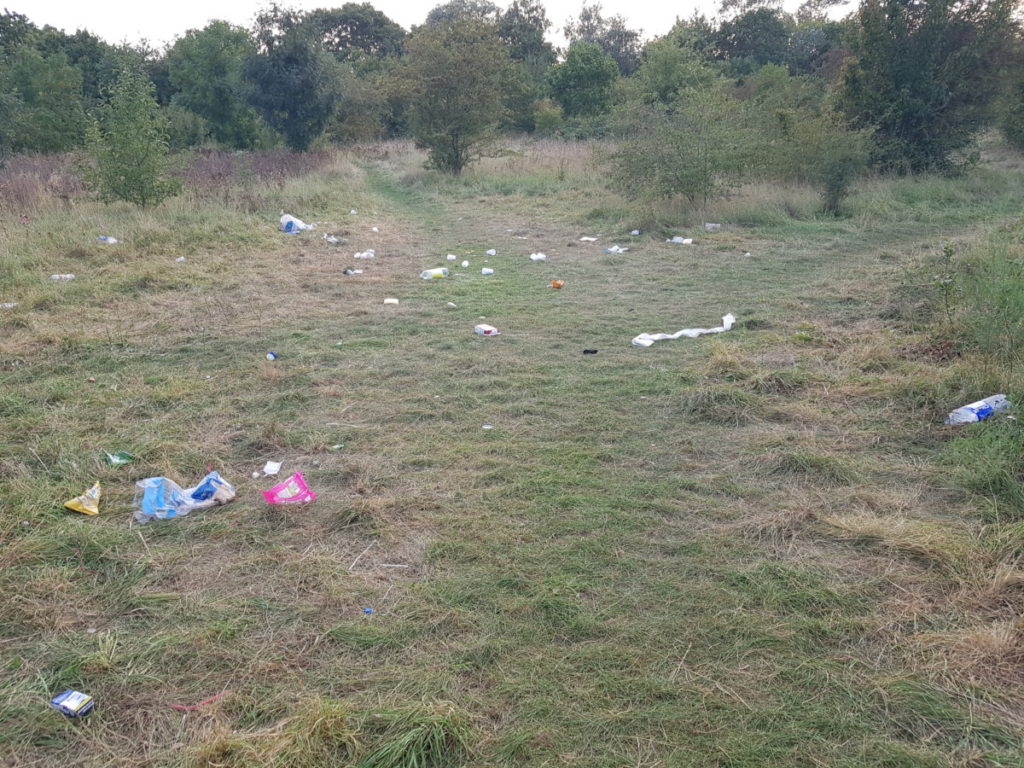
Imagine my delight the next morning when I arrived at the clearing, picker and bin bag in hand, to find that someone had beaten me to it and had already cleared up the mess. I thought it might well have been the woman who walks a small white dog, who I regularly see with her own picker in hand.
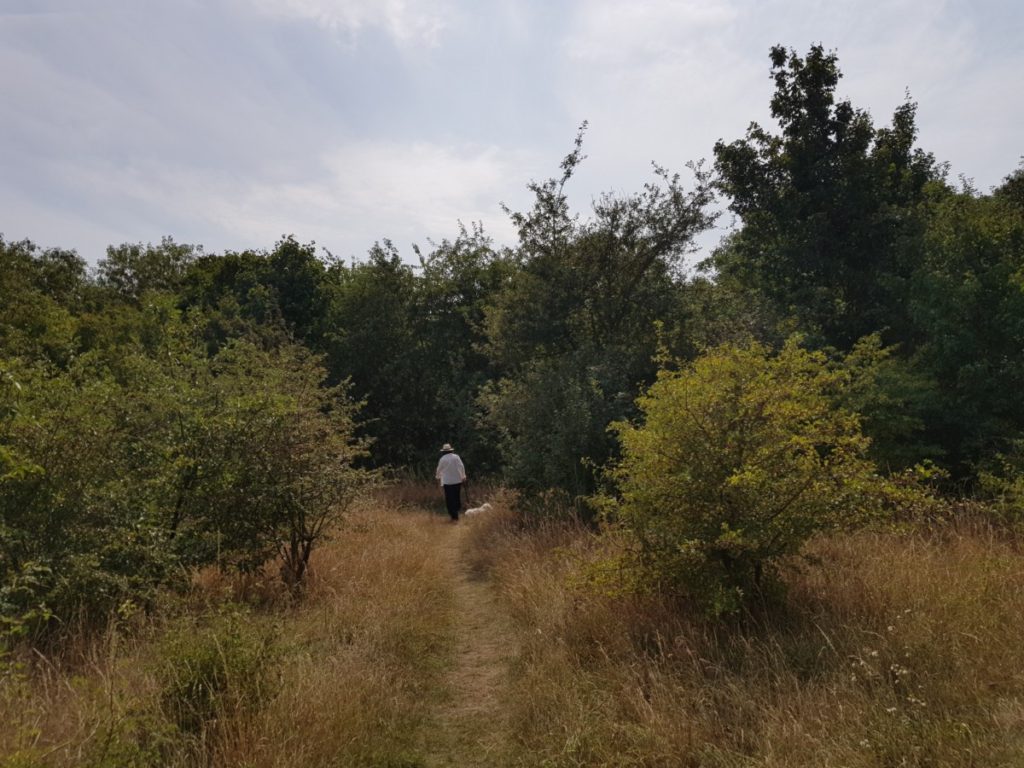
I decided I may as well use my kit and, walking round the woods, still managed to collect half a bin bag of bottles, sweet wrappers, and even some abandoned clothes. It was both deeply irritating to find all that litter, and satisfying to remove it. It was also, I thought to myself, a pretty easy activity to tack onto my dog walk.
Just a few hours later, when back in the woods for our evening walk, I found there were new sweet wrappers lying on the path.
I wondered what makes a person just throw their rubbish on the ground like that. Is it just plain old laziness? I would argue that it is much more than that. It demonstrates a fundamental lack of consideration for other people, the environment, for the collective. It shows the lack of a basic sense of belonging to a community, and to a shared sense of respect and responsibility. Does that person really think that it’s someone else’s job to dispose of their sweet wrapper?
I will say that my council and their partners do a good job at rubbish and litter collection. They have even tried putting up quite provocative signs to encourage people not to litter. However, this is not just about what we can and should expect from our local authorities. This is about the role that every one of us can play in shaping and improving the quality of our places.
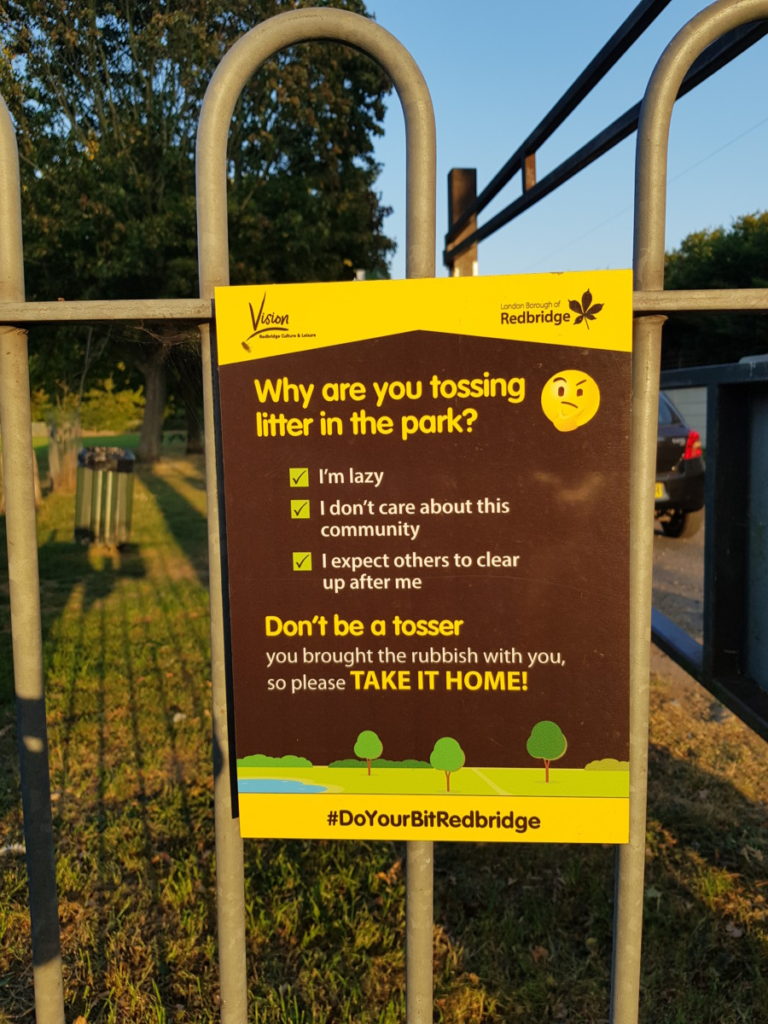
What if, as well as avoiding the actions that impact negatively on our places and show a lack of respect for others, we each committed to proactively carry out small actions that would benefit the collective. We have seen some inspiring mutual aid during the Covid crisis, but what if we could all show that sense of common purpose and common good in our every day?
I have decided that I will take my picker out with me on dog walks on a regular basis. It’s a small contribution, and one that I can easily make. There is nothing in it for me except the satisfaction of knowing that I have helped to protect my natural environment, and to improve the experience of others who visit the woods.
What if we could all find one or two small things that we could contribute to the collective good? So look around you and ask yourself and others, “What can I do to help?”. Imagine the resources we could unearth and unlock!

